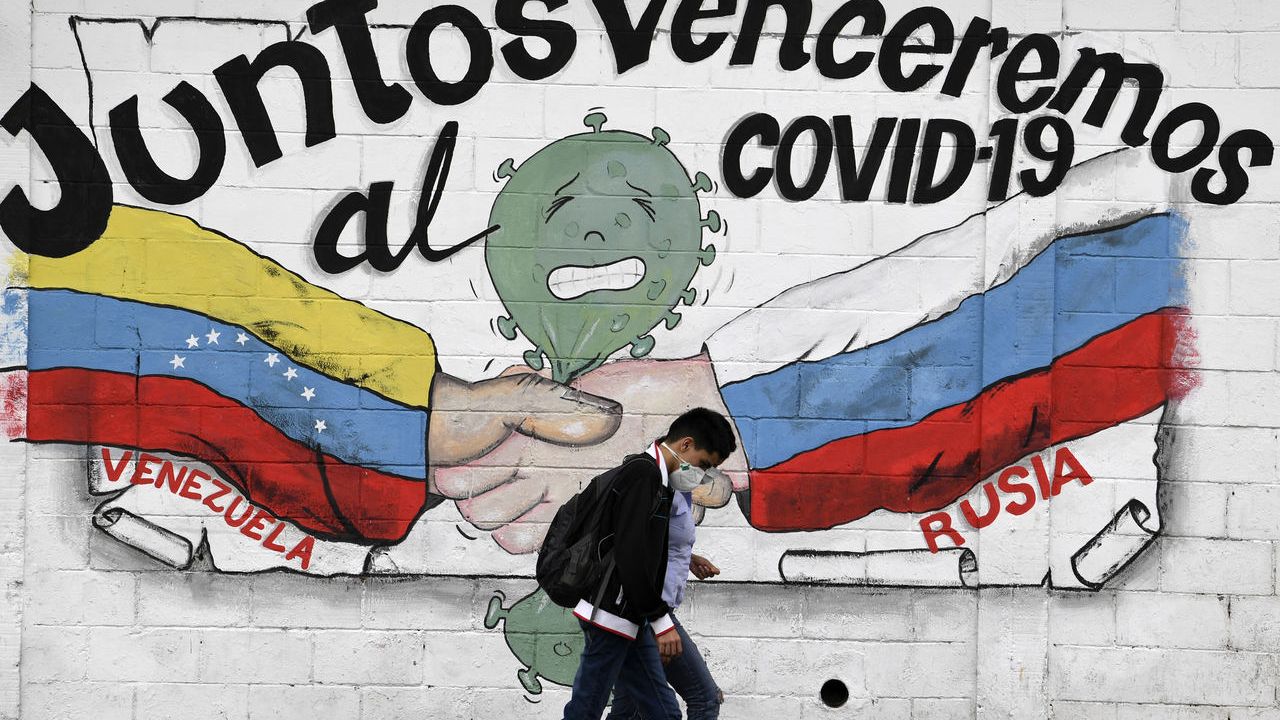RIO DE JANEIRO, BRAZIL – The slowness of vaccination against Covid-19 in Venezuela has been aggrvated by the shortage of Sputnik V, the immunizer that Russia agreed to send ten million units to Venezuela, but only 1,430,000 have been received.
Today the vaccine seems to be a ghost, while an undetermined number of citizens are waiting, with no certainty, for their second dose.
The delay has lasted for weeks. The country’s authorities have not yet commented, although many citizens – most of them over 60 years old – should receive the second dose within 21 days after the first, but have been waiting for almost two months.
Read also: Check out our coverage on Venezuela
Although the situation is not exclusive to Venezuela, due to a problem in producing these vaccines, representatives of various sectors are demanding answers from the authorities, who have been widely criticized for the “disorder” in the vaccination process.
Russia has said that the inoculation time between the first and second dose can be up to 180 days. Still, the silence and the lack of data on the arrival of a new batch of vaccines keep the population under “uncertainty” and “worried”, says the director of the NGO Médicos Unidos, Jaime Lorenzo, in a conversation with Efe news agency.
FAILURES IN THE VACCINATION PLAN
The doctor pointed out that “if there were an orderly and public vaccination plan” in Venezuela, this error of management of the doses received, without having guarantees to complete the guideline, would not be registered.
“If you have a two-dose vaccination plan, you must have the security of having enough second doses to cover what you were doing first,” he indicated.
In a tour of several vaccination points in Caracas, Efe found that Sputnik V is absent in each of them. Although officials refuse to speak to the cameras, they confirm that the only vaccine in stock is the Chinese Sinopharm.
“They gave me Sinopharm’s Vero Cell,” said 60-year-old retiree Ildefonso Castán, who said he felt comfortable with the vaccination process.
The situation is different for those who have been vaccinated with Sputnik V, as they have to constantly visit their center to ask if the second doses have arrived, as in the case of Mrs. Sixta, 65 years old. “The boy told me that he was waiting and coming now and then to ask to see when the vaccine would arrive,” she said.
VACCINE PURCHASE AGREEMENTS
Venezuela has announced agreements to acquire twenty million vaccines with Russia -ten from Sputnik V and ten from EpivacCorona, twelve million units of the Abdala drug with Cuba, and with the Covax mechanism, coordinated by the World Health Organization (WHO), for a little more than eleven million doses. Still, there has been no public information about the agreements with China.
The government has disclosed the arrival of 1,800,000 doses from the Chinese company Sinopharm, divided into two shipments, and of 1,430,000 units of Sputnik V in eight batches, the last one on June 12.
According to these data, Venezuela has received 3,230,000 vaccines since February.
On June 24, Executive Vice-President Delcy Rodriguez announced the arrival of a batch of the Cuban Abdala vaccine – currently being tested in Havana – but without specifying the quantity.
At the beginning of July, President Nicolás Maduro assured that the country had vaccines in stock to immunize 20% of the population. That represents some six million people, but he did not clarify when these drugs arrived or which laboratory they belonged to.
Since then, Venezuelan authorities have not provided further details on new arrivals, although it is expected that in coming weeks, the country will receive doses of Covax, as announced by the Pan American Health Organization (PAHO).
As of Sunday, July 25, a total of 3,612,473 citizens had been vaccinated in Venezuela, according to data offered by the President, who promised to immunize 70% of the population this year, some 22 million people.
To date, Venezuela has accumulated 306,673 infections and 3,607 deaths, and a week ago, the arrival of the Delta variant was announced; this has caused labor unions and the opposition to once again urge accelerating the immunization process.


